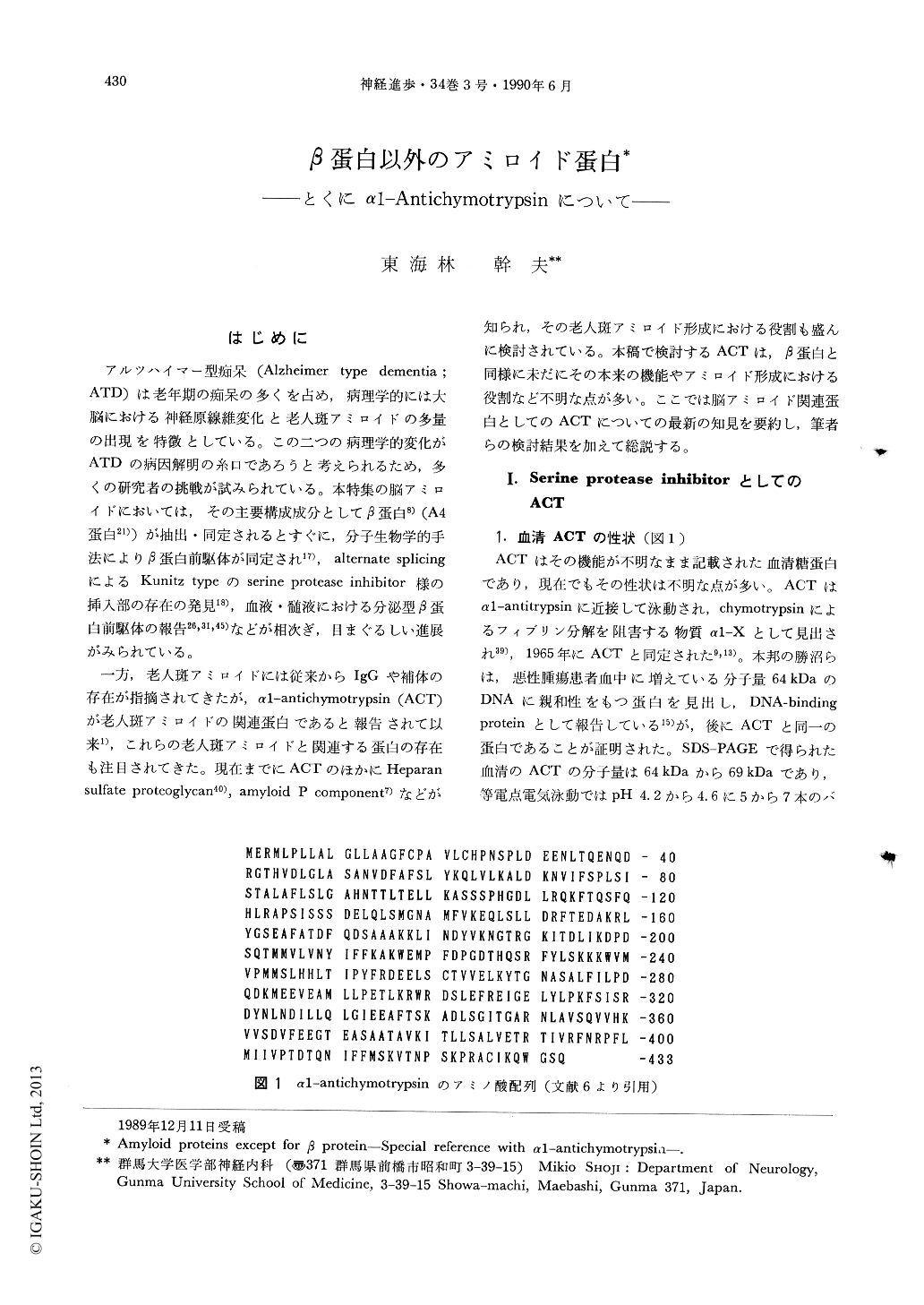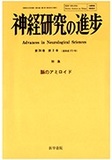Japanese
English
- 有料閲覧
- Abstract 文献概要
- 1ページ目 Look Inside
はじめに
アルツハイマー型痴呆(Alzheimer type dementia;ATD)は老年期の痴呆の多くを占め,病理学的には大脳における神経原線維変化と老人斑アミロイドの多量の出現を特徴としている。この二つの病理学的変化がATDの病因解明の糸口であろうと考えられるため,多くの研究者の挑戦が試みられている。本特集の脳アミロイドにおいては,その主要構成成分としてβ蛋白8)(A4蛋白21))が抽出・同定されるとすぐに,分子生物学的手法によりβ蛋白前駆体が同定され17),alternate splicingによるKunitz typeのserine protease inhibitor様の挿入部の存在の発見18),血液・髄液における分泌型β蛋白前駆体の報告26,31,45)などが相次ぎ,目まぐるしい進展がみられている。
一方,老人斑アミロイドには従来からIgGや補体の存在が指摘されてきたが,α1-antichymotrypsin(ACT)が老人斑アミロイドの関連蛋白であると報告されて以来1),これらの老人斑アミロイドと関連する蛋白の存在も注目されてきた。現在までにACTのほかにHeparan sulfat proteoglycan40),amyloid P component7)などが知られ,その老人斑アミロイド形成における役割も盛んに検討されている。
α1-antichymotrypsin (ACT) is a glycoprotein with molecular weight of 64 kDa to 69 kDa in serum, liver and brain. ACT is a protein consisted of 433 amino acid residues, produced in liver, secreted to blood circulation, and regulated IL-1/6 and cytokines. ACT is partially produced in the brain. Blood ACT level is elevated in acute inflammation, infection and malignancies. ACT inhibits chymotrypsin like seryl protease, ie., cathepsin G, chymotrypsin, elastase and chymase.
Immunocytochemistry shows that ACT is present in the neurons, and cortical/subcortical astocytes. All types of senile plaques and some small amyloid deposits are labeled by ACT staining in Alzheimer brains. Subpial amyloid deposits are negative. Almost all the senile plaques including diffuse plaques labeled by ACT staining. Extracellular tangles also contains ACT. Diffuse plaques in Down's syndrome and amyloid angiopathy are stained. However, Kuru plaques and amyloids in systemic amyloidosis are negative. Other serine protease inhibitors and a serine protease are negative in senile plaques. This indicate that ACT is closely related to senile plaque amyloids from early to late stage.

Copyright © 1990, Igaku-Shoin Ltd. All rights reserved.


